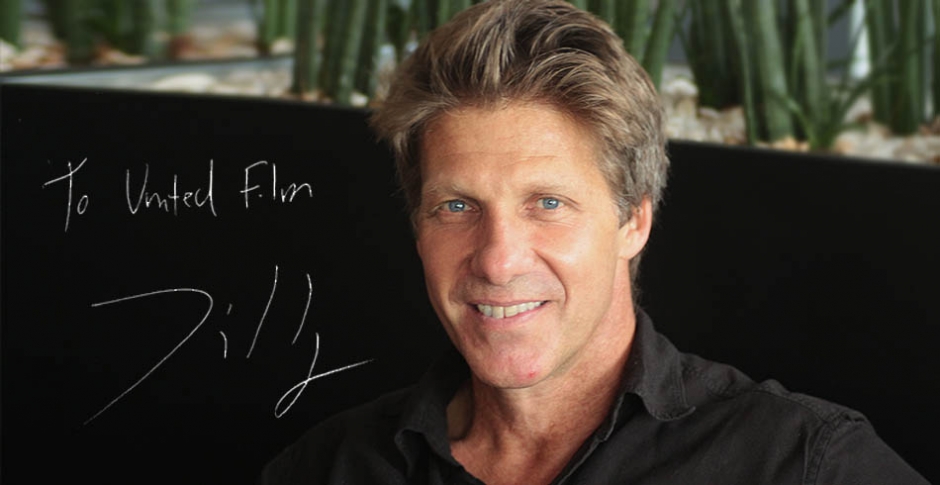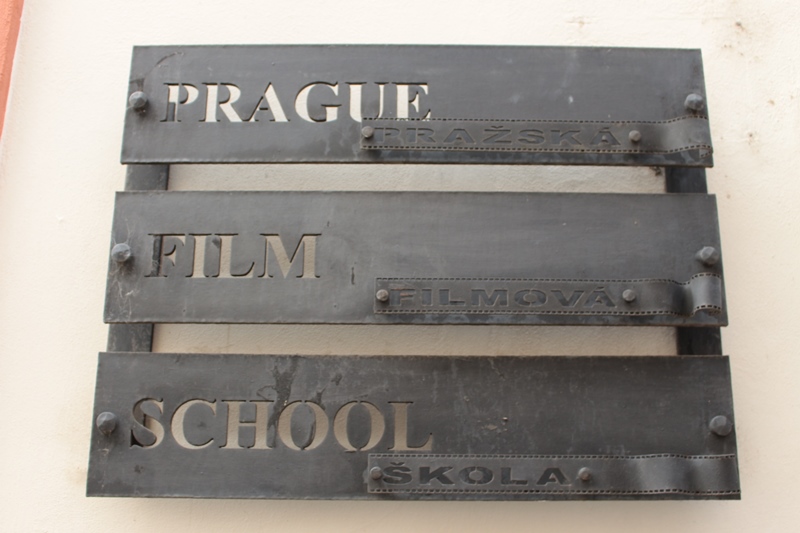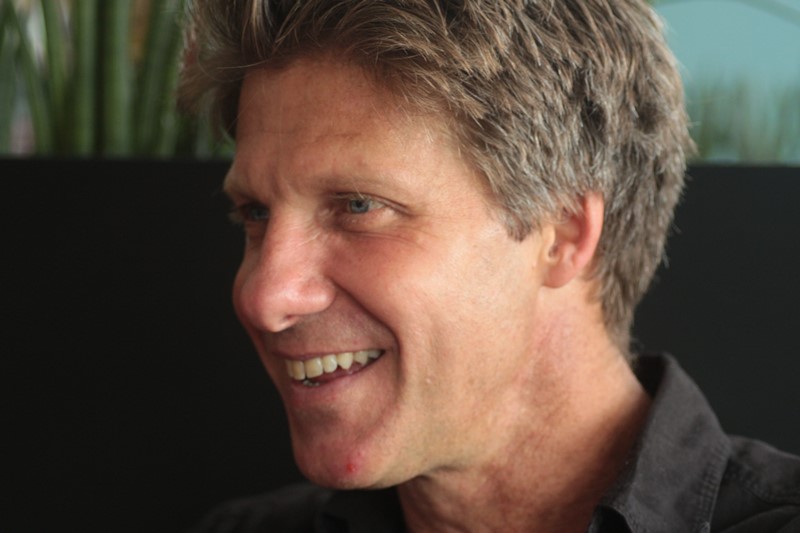Tariq Hager - We feel responsible for students who come to our school
Written by Eva Csölleová, Vítek FormánekLebanese born American opened a film school in Prague in 2003 along with Tomas Krasauskas from Lithuenia.Does is sound interesting to you? This guy is called Tariq Hager (1971) and he was a member of International board for student films at Zlín Film Festival 2018. We didn´t know anything about him or his school before but this project so interested us that we simply had to meet him. He turned out to be very friendly and enthusiastic guy and 30 mins spent with him was very enjoyable and pleasantly spent time.
What film experience and education do you have under your belt?
When I was a child I actually was acting in films. It was my sister who was an actress and I had no interest in acting but they sent a casting agent to our school and he picked me and I was acting in very big film Hotel Colonial with people like Robert Duvall, John Savage. And I was to play John Savage´s part as a young kid but they changed the script and I had to play Robert Duvall´s young protagonist. So that was beginning of my career and I was about 13 years old.
W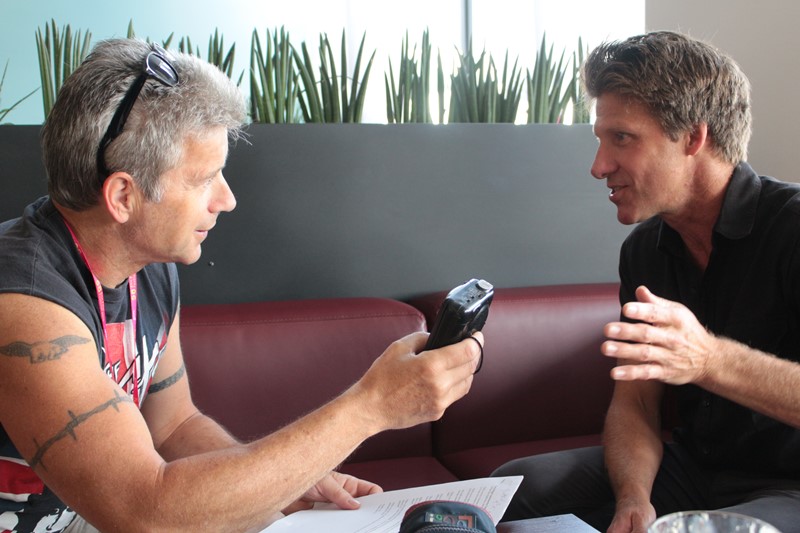
Yeah, I was born in Lebanon. There was a war between Pakistan and East Pakistan and we were pushed to Lebanon which was Paris of Middle East at that time. My sister came down with cholera and in one hospital a family friend helped to secure a medical evacuation which saved the life of my sister and we went to Beirut where I was born one month prematurely. So I was named after the doctor called -Tariq. But now I am 100% American.
Did you try to become a director or producer yourself but failed so looked for another option or it was your dream to establish film school?
I would say neither. I actually studied philosophy so my career was focused on education and schools. Film happened incidentally. I was studying at Brown University in linguistic seminars and was rubbing shoulders with many film makers and I really noticed the charisma of film making. And it was then when I realized the school of filmmaking would find eager students. I am musician myself and play Flamenco on guitar and as you see I got to film through very funny route. So it wasn´t that I wanted to make film but I failed, in fact I was exposed to so much film making that now I was actually considering if I myself want to make films. So it is other way round.
Did you try other countries but it didn´t happen so for whatever reason the Prague seemed to be the best bet?
There was always something special about Prague that got me, it´s a magic. It has a long preserved historical beauty and also has the modern, cosmopolitan buzz. Prague is like a magnet for me, I love it. I tried to get away couple of times but always had to come back.
So we didn´t try to set up the school elsewhere although in fact we were invited many times to open some branch in Berlin, Egypt or Brasil but we just wanted to keep all our eggs in one basket. Prague is actually fantastic place to run a school, it has a film legacy there and film charisma. You can just see how powerful and amazing the 60´s were, which is one thing, that people from abroad think about, the Czech cinema. So it´s logical place to study film and it is safe place. We have 40 Indian students in our school and safety is big issues for their families. Other cities have small aggression towards immigrants, so in Prague students are safe and also it is relatively inexpensive. Every time you travel abroad you feel being ripped off so Prague gives them a chance to make films for less money and save lost of expenditures.
So you rented a place or you bought some buildings?
We have life contract for two buildings just right behind National Theatre, behind Goethe institute. One of the buildings is protected by UNESCO and goes back to 11th century and it’s a building where composer J.B.Foerster lived so you see his bust on the wall. Second building is across the square and it used to be butcher technology house. During communism butchers were very powerful people so almost everybody wanted to be a butcher but after 1989 people found other ways how to be powerful and this place was virtually empty so we moved in and colonized second floor and that is where we have our studios now.
Could you talk us through process of establishing the film school in foreign country and especially in Prague where FAMU –famous film school -has long tradition?
Our school is a result of evolution. We were running some evening courses in different number of areas in Prague. Then we got a call from an Englishman who asked us he would like to make a hip hop and if there are any classes but he is over 40 years old. So I wrote him candid reply that he may be couple of years advanced for that. So he asked us if we could run couple of film courses for him and his friends in Prague. We got our hands on very cheap camera for about 15000 crowns and he wanted us to run some course to get Czech students to get close to it. So we run the course with Helena Třeštíková and it was documentary course with 6 students for couple of months. We only got two tiny, little cameras but organized a summer course of film making and stuck up out truck with brochures and went to Scandinavia to put there the adverts and try to get some clients. It may sound strange now but we felt we had to do something and this was in pre-google time.
So we made that course and it was fun and very gratifying thing to see all students being supremely creative. It was very successful course and we decided to do something larger. There seemed to be some type of space between terribly expensive US film schools which cost about 70 000 dollars a year just for tuition and other film fortresses in Europe, which choose 3 out of many thousand students and three places are reserved for children of the teachers. And once you are in there, there is still that dusty, antiquated system with mentors who don´t really teach. So we chose this empty space where we introduced a new approach to film making.
There are many students who think that national film academies in their countries don´t satisfy their needs. We have many students of these academies from Turkey, Columbia etc etc with degrees but they feel they don´t have actual hard skill in film making. Our approach is to give them exactly what they are looking for, which is non stop practice in film making. We have very structured program which enables them to learn through the practice. So when they make their first film, they make mistakes but we teach them and next time they don´t repeat same mistakes again..
During semester they make, direct and write 4 films and also watch each other films so at the end of the year they see about 16 films in addition to the classes from 8-5 p.m. We provide four courses in directing, editing, cinematography and screenwriting.
Who teaches them, Czech film staff?
We bring the lectors from all over the world. At the beginning we had local teachers but there was big disconnect between students expectations and teaching philosophy. So we have 27 teachers from which 8 are full time. They are from US, Spain, South America and we have famous film makers coming to our school and make their presentation. We even had Tom Cruise in our class when he was shooting Mission Impossible IV, he actually was escaping from our building without his shoes and shirt. And he did all his stunts himself. So one day, after shooting he came to our class and talked to the students and was really, really nice and cool.
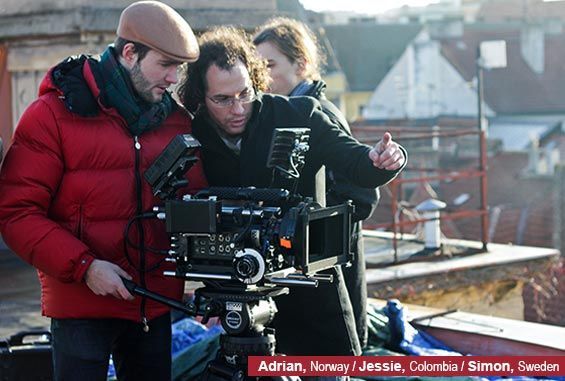 Did you feel any hostility from FAMU or Ministry of Culture or education or it was a piece of cake?
Did you feel any hostility from FAMU or Ministry of Culture or education or it was a piece of cake?
I would not dwell on that, but yes, we did. We were new kids on the block and they considered FAMU as a sacred institution and they saw us as a competition. So it was their response but while their interest was primary at Czech students, we were focused on international ones. But our programmes are accreditated by the Czech Ministry of Education, so students graduate with certificate in either film production, screenwriting, directing or cinematography.
Who are your students?
Some people already worked in film industry but they felt their education is still incomplete, so sold their car to get the money and came to Prague to get more practice and skill. Some of them came here with intention of getting the training to get closer to key crew position. Bad thing is that students who graduate from national film schools are taught programmes that are 90% based on theory and they are expected to find what they need for their job themselves. It is like if you would go to study long jump but would have to run 400 meters and then re-calibrate the figures for your performance. We get people of different age from all over the world. From say 60 students per year there would be represented 25 countries. Sometimes we get people who already worked somewhere and realized that they were wasting their life and want to do what they love, which is working in the film. So they make this existence U-turn, take their savings and go to Prague and put everything into what they wanna do. And we feel responsible in one year of their life so we try to give them our best.
How did you put together the money to kick-off the project? Did you get any funding from Czech ministry of education?
In a business of religion it would be written in the bible, that it was a miracle. We didn´t have any capital in the bank, it was based on tuition, so once the students paid for that, we had our first money to run the business It was our first income we invested into facilities. We had the budget for academic year and we had to work with that. We also used some deposits to get started. It was like flying in the plane without knowing how to pilot that but we knew the plane must not crash.
How long is the programme for your students and how much does it cost per year?
The year programme is 9 months and it costs 14 000 euros. It may sound a lot but is inexpensive compare to other foreign film institution. But looking at the Indian families of 3children, I don´t know how can they afford to pay such money for one child. Some students used their saving to invest into their education at our school but I have never ever heard one complaint that we would be expensive. I think once they come to our school they feel very well taken care of. We provide every facility they need for film making. We have maximum of 60 students in first year and 16 students in second year. In fact we had to reject 50% of students who wanted to continue because we just could not take that, that´s how it works.
Do you have any graduates who already broke through and made some success on international scene?
Yes, we had some who had films in either Cannes film festival or Locarno film festival. Basically all our students follow their career in film making because they had such strong desire to get into it and we provided them with necessary practice and skill.


